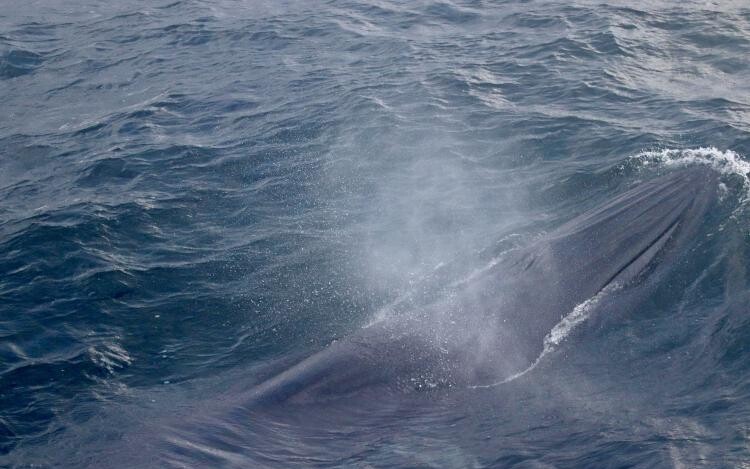A push from environmental groups to impose ship speed limits to protect the endangered Rice’s whale has been denied, while the National Oceanic and Atmospheric Administration works on other measures to protect the whales in the Gulf of Mexico, the agency said Oct. 27.
In May 2021 the Natural Resources Defense Council, Healthy Gulf, Center for Biological Diversity, Defenders of Wildlife, Earthjustice, and New England Aquarium filed a petition with NOAA seeking a 10-knot vessel speed limit and other restrictions on shipping to protect Rice’s whales in the northeastern Gulf of Mexico.
The Rice’s whale population is believed to number fewer than 100 animals, making it one of the most endangered species on Earth, according to NOAA. Once hunted by whalers in the Gulf of Mexico, Rice’s whales are rarely seen today in the northeast Gulf and are at risk of ship strikes.
The environmental groups’ petition sought a year-round, 10-knot vessel speed restriction within waters between 100 and 400 meters deep from around Pensacola, Fla., to just south of Tampa, Fla., plus an additional 10-kilometer (5.4 nautical mile) “vessel slowdown zone” extending seaward from that area.
In addition, the groups proposed prohibiting vessel transits at night, requiring operators to report their plans to NOAA Fisheries, and carry visual observers.
Port operators in the Southeast U.S. fiercely opposed the proposal.
“It’s as if NOAA wants Florida to hang up a ‘closed for business’ sign,” Mike Rubin, president and CEO of the Florida Ports Council said in June. “Florida’s Gulf of Mexico seaports play an enormous role in fueling Florida, and are essential suppliers of everything from food to medical supplies, and construction materials to build homes, roads and make ongoing hurricane repairs in Southwest Florida.”
In announcing its decision, NOAA said other work needs to be done to come up with a protection plan for the whales.
“We have concluded that fundamental conservation tasks, including finalizing the critical habitat designation, drafting a species recovery plan, and conducting a quantitative vessel risk assessment, are all needed before we consider vessel regulations,” according to a statement from the agency on Frida.y
Denying the environmental groups’ petition takes one whale fight off the table for NOAA Fisheries, for now. The agency is now dealing with opposition to its own proposed rule that would extend seasonal 10-knot speed limits along the East Coast to protect endangered North Atlantic right whales.
Ten seasonal management areas for right whales, mostly near approaches to East Coast ports, now require vessels over 65’ to slow to 10 knots when right whales are present. The proposed rule would extend the restricted hull length down to boats between 35’ and 65’, and is drawing widespread opposition from the recreational and charter fishing industries, boat builders and other maritime interests.
The debate on the speed limit popped up Oct. 26 during a U.S. Senate Energy and Natural Resources Committee hearing on federal offshore energy policy in Washington, D.C. Committee chairman Sen. Joe Manchin, D-W.V., asked NOAA Fisheries Assistant Administrator Janet Coit where the right whale speed limit rule now stands.
“For the final rule, we’ve consistently let people know that we hope to make a decision by the end of the year for the vessel speed rule affecting North Atlantic right whales,” Coit replied.




